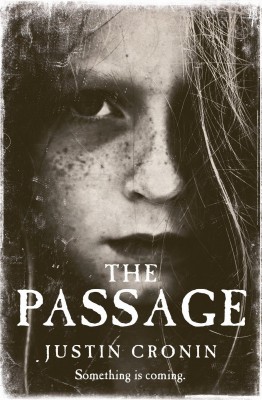The Passage by Justin Cronin
It’s the near future, and the FBI are using death row criminals to test out a vampyric virus found in bats during a science expedition.
The virus is cultivated in secret federal labs, but progress is slow. They need a young body to test the drugs out on and Amy Bellafonte, a girl who falls under the radar due to her AWOL murderer mother abandoning her at a convent, is the perfect specimen.
But, after a long battle to deliver her to the lab and just as she is given the virus, there is a security breach in the wards of the test subjects. These half humans, half monsters escape the lab and terrorise the world, killing most and turning the rest into vampires, or ‘flyers’ as they are dubbed. In order to preserve the human race, the army quickly assemble a colony of people and they are transported to a secure, fenced location to settle and wait out the apocalypse.
A hundred years later and the colony is still there, although resources are low and the people are struggling. Every day is a battle against the flyers, until a mysterious girl shows up – Amy – and things begin to change. Many of the citizens of the commune begin to act weirdly, bizarre things occur and secrets of the past are unveiled. No one knows what exactly is going on, but they know it’s got something to do with the unknown girl that turned up unannounced, a girl who looks fourteen but may actually be over a hundred years old. A girl who does not seem entirely human.
I absolutely adored the beginning part of this book with the FBI experiments and conspiracies, and really enjoyed the in depth descriptions of all of characters – especially the scientist Fanning, the convict named Carter and the FBI agent named Wolgast. But then this part of the novel suddenly evaporated just as I was really getting into it, and the whole thing flew a hundred years into the future without a backward glance. It took a really long time for me to settle into this new segment of the book but I never grew to like it as much as the earlier chapters. I’m not sure if these characters will be revisited later on in the trilogy, but I hope they are.
As well as the jarring transition between the beginning and the middle of the novel, I was quite put off by Cronin’s… overindulgences? Cronin is an excellent writer, but focuses more than I’d like on the finite details.
Although at times I felt I had to wade through some heavy description to get to the significance, it was excellent overall. The reputation of vampires seems to have been redeemed somewhat since the troubling times of Twilight, and Cronin has created a rich, intricate plot that will definitely encourage to buy the next two books in the series. I just hope he holds back a bit more.




Leave a Reply